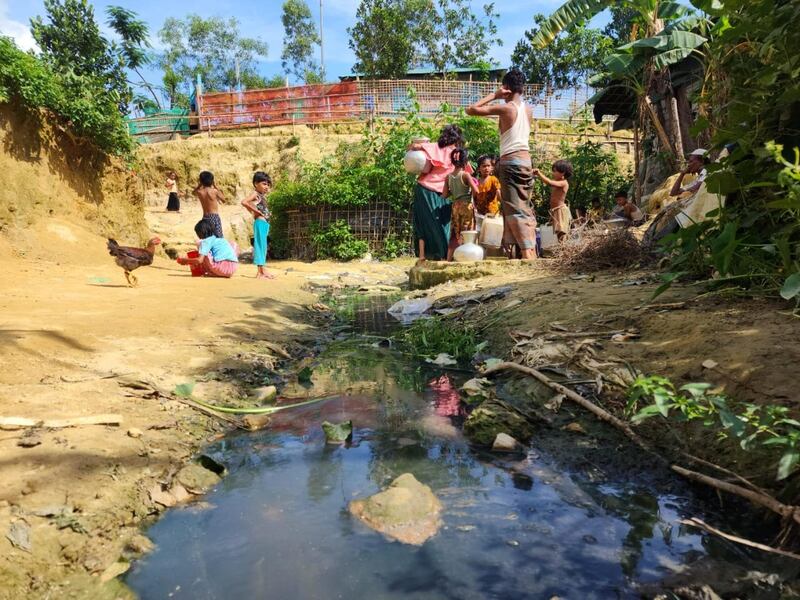Bangladesh has seen a spike in dengue cases and deaths in less than a month, according to government health figures released on Monday that did not include infections in Rohingya refugee camps, where cases of the mosquito-borne disease have been climbing as well.
The government reported 9,193 cases and 56 deaths since the start of 2023, compared with 2,865 cases and 21 deaths on June 9.
Health officials in Cox’s Bazar, a southeastern district that hosts about 1 million Rohingya refugees, reported 330 cases in June and 10 more during the first three days of July.
The officials estimated that about 96% of those infected were Rohingya Muslims living in the sprawling and densely populated camps by the border with Myanmar, from which members of the stateless group fled persecution.
Since Jan. 1, more than 1,500 Rohingya have been infected and three have died – numbers that are expected to climb during the monsoon season, which just began and runs through mid-August.
Rashid-e-Mahbub, president of Health Rights Movement, an NGO, said Rohingya camp leaders should act to combat mosquitoes responsible for the spread of the disease.
“The living space in the Rohingya refugee camps in Cox’s Bazar is very densely populated. If its management is not done effectively, the dengue situation can escalate,” he told BenarNews, an RFA-affiliated news service.
Meanwhile, Medical Officer Fahim Ahmed Faisal of the Cox’s Bazar Civil Surgeon’s Office, said 350,000 mosquito nets had been distributed in the camps.
A government official in Cox’s Bazar said other steps were being taken to combat the spread of mosquitoes.
“Our people regularly clean the drains, garbage bins and standing water points in the camps,” Md. Mostafa Sadek told BenarNews, adding that fogger machines to kill adult mosquitos have been used in camps stricken with dengue outbreaks.
Of the 33 refugee camps in Cox’s Bazar, dengue outbreaks have been most prevalent in four camps in Ukhia, a local sub-district.

Abul Kalam, a resident of the Shalbon Rohingya camp in Teknaf, complained of poor sanitary conditions.
“Because of unclean drains, mosquito infestation has increased … as a result, most children suffer from various diseases including dengue,” he told BenarNews.
Another Shalbon resident expressed concern for family members who had become sick recently.
“I have six children in my house. Two of them have had high fevers since yesterday,” Nur Nahar told BenarNews on Monday.
“Even after first aid, their health condition did not improve. I think they were infected with dengue,” he said, adding that two family members were infected last year.
During a visit to the Shalbon camp on Monday, a BenarNews correspondent saw three people cleaning the camp’s drains while children sat nearby.
An entomologist blamed the refugee camps for contributing to the outbreak.
Dengue cases this year are much higher than in previous years, Jahangirnagar University professor and entomologist Kabirul Bashar told BenarNews.
“In Rohingya refugee camps, due to the lack of sanitation and overcrowding, infection rates are much higher than in areas outside the camps,” he said.
On Monday, the Directorate General of Health Services reported that four people had died in the previous 24 hours, bringing to 56 the year’s nationwide death toll from dengue. Data shows three deaths occurred in Dhaka city and one in Mymensingh.
In addition, at least 436 dengue patients were admitted to hospitals in the last day, including 174 in Dhaka city.
BenarNews is an RFA-affiliated news service.
